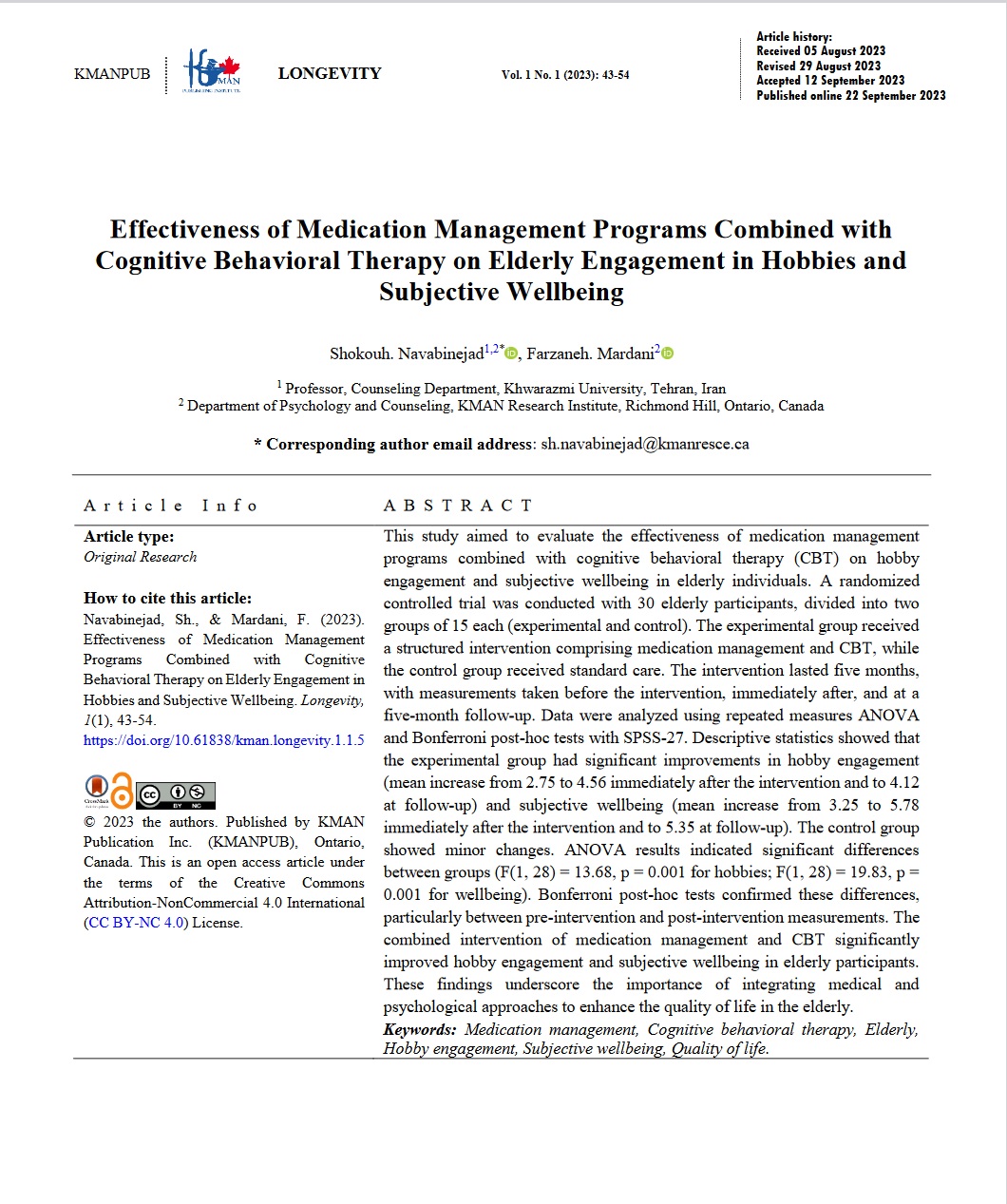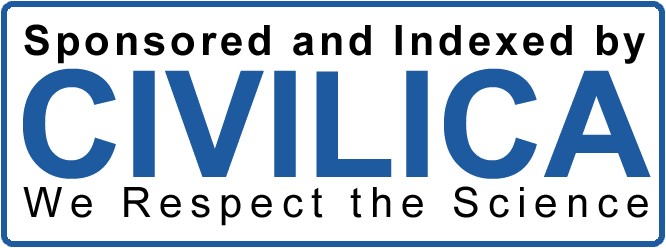Effectiveness of Medication Management Programs Combined with Cognitive Behavioral Therapy on Elderly Engagement in Hobbies and Subjective Wellbeing
Keywords:
Medication management, Cognitive behavioral therapy, Elderly, Hobby engagement, Subjective wellbeing, Quality of lifeAbstract
This study aimed to evaluate the effectiveness of medication management programs combined with cognitive behavioral therapy (CBT) on hobby engagement and subjective wellbeing in elderly individuals. A randomized controlled trial was conducted with 30 elderly participants, divided into two groups of 15 each (experimental and control). The experimental group received a structured intervention comprising medication management and CBT, while the control group received standard care. The intervention lasted five months, with measurements taken before the intervention, immediately after, and at a five-month follow-up. Data were analyzed using repeated measures ANOVA and Bonferroni post-hoc tests with SPSS-27. Descriptive statistics showed that the experimental group had significant improvements in hobby engagement (mean increase from 2.75 to 4.56 immediately after the intervention and to 4.12 at follow-up) and subjective wellbeing (mean increase from 3.25 to 5.78 immediately after the intervention and to 5.35 at follow-up). The control group showed minor changes. ANOVA results indicated significant differences between groups (F(1, 28) = 13.68, p = 0.001 for hobbies; F(1, 28) = 19.83, p = 0.001 for wellbeing). Bonferroni post-hoc tests confirmed these differences, particularly between pre-intervention and post-intervention measurements. The combined intervention of medication management and CBT significantly improved hobby engagement and subjective wellbeing in elderly participants. These findings underscore the importance of integrating medical and psychological approaches to enhance the quality of life in the elderly.



















